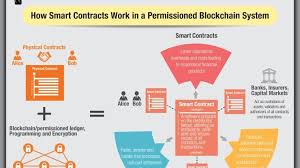
The Importance of a Contract Data Management System
In today’s business landscape, effective contract management is essential for ensuring compliance, reducing risks, and optimizing operational efficiency. A robust contract data management system plays a crucial role in streamlining the entire contract lifecycle, from creation to execution to renewal.
One of the key benefits of a contract data management system is centralizing all contract-related information in one secure repository. This allows organizations to easily access and track contracts, key dates, obligations, and performance metrics. With quick access to critical data, decision-makers can make informed choices and mitigate potential risks.
Moreover, a contract data management system enables automated workflows and notifications for key milestones such as renewal dates or payment deadlines. By automating these processes, organizations can improve efficiency, reduce manual errors, and ensure timely compliance with contractual obligations.
Another significant advantage of implementing a contract data management system is enhanced collaboration among stakeholders. With features like document sharing, version control, and audit trails, teams can work together seamlessly on contract negotiations, reviews, and approvals.
Furthermore, advanced analytics capabilities within a contract data management system provide valuable insights into contract performance metrics, vendor relationships, and cost-saving opportunities. By leveraging this data-driven approach, organizations can optimize their contracting processes and drive strategic decision-making.
In conclusion, a contract data management system is an indispensable tool for modern businesses looking to streamline their contract processes, enhance compliance efforts, and gain actionable insights from their contractual agreements. By investing in a comprehensive solution tailored to their specific needs, organizations can unlock the full potential of their contracts and drive sustainable growth in today’s competitive marketplace.
Key Insights into Contract Data Management: Understanding Systems, Identifying Top Software, and Differentiating from CRM
- What is contract data management?
- What is a CLM system?
- Which is the best contract management software?
- What is the difference between CRM and contract management?
What is contract data management?
Contract data management refers to the systematic process of organizing, storing, and overseeing all aspects of contractual information within an organization. It involves the centralized management of contract documents, key terms, obligations, and performance metrics to ensure compliance, mitigate risks, and optimize operational efficiency. By implementing a contract data management system, businesses can streamline the entire contract lifecycle, from creation to execution to renewal, while enabling automated workflows, enhancing collaboration among stakeholders, and leveraging advanced analytics for informed decision-making. In essence, contract data management is a strategic approach that empowers organizations to effectively manage their contractual agreements and drive sustainable growth in today’s dynamic business environment.
What is a CLM system?
A Contract Lifecycle Management (CLM) system is a comprehensive software solution designed to streamline and automate the entire contract management process. From initial contract creation to negotiation, execution, and renewal, a CLM system centralizes all contract-related data in one secure platform. By providing features such as document storage, version control, automated workflows, and alerts for key milestones, a CLM system enables organizations to efficiently manage their contracts, improve compliance, reduce risks, and enhance collaboration among stakeholders. In essence, a CLM system serves as a powerful tool for optimizing contract processes and maximizing the value derived from contractual agreements within an organization.
Which is the best contract management software?
When it comes to choosing the best contract management software, there is no one-size-fits-all answer as the ideal solution can vary depending on the specific needs and requirements of each organization. Factors to consider when evaluating contract management software include ease of use, scalability, customization options, integration capabilities with existing systems, security features, compliance with industry regulations, and customer support. It is recommended to conduct thorough research, read reviews, and possibly request demos from different vendors to determine which software aligns best with your organization’s goals and operational processes. Ultimately, the best contract management software is one that seamlessly fits into your workflow, enhances efficiency, and helps you achieve your contract management objectives effectively.
What is the difference between CRM and contract management?
When comparing CRM (Customer Relationship Management) and contract management, it’s essential to understand their distinct focuses within an organization. CRM primarily revolves around managing customer interactions, sales processes, and marketing campaigns to enhance customer relationships and drive revenue growth. On the other hand, contract management specifically deals with the creation, negotiation, execution, and monitoring of contracts with vendors, partners, or clients to ensure compliance, mitigate risks, and optimize contractual obligations. While CRM is more customer-centric and sales-oriented, contract management is centered on legal agreements and operational efficiency in managing contractual relationships. Both systems play critical roles in organizational success but serve different purposes in managing customer interactions and contractual obligations effectively.
